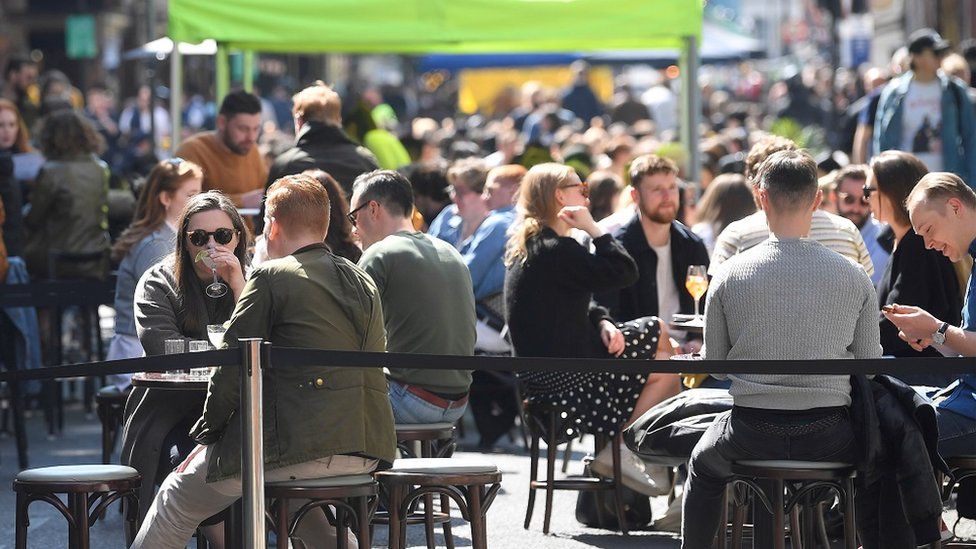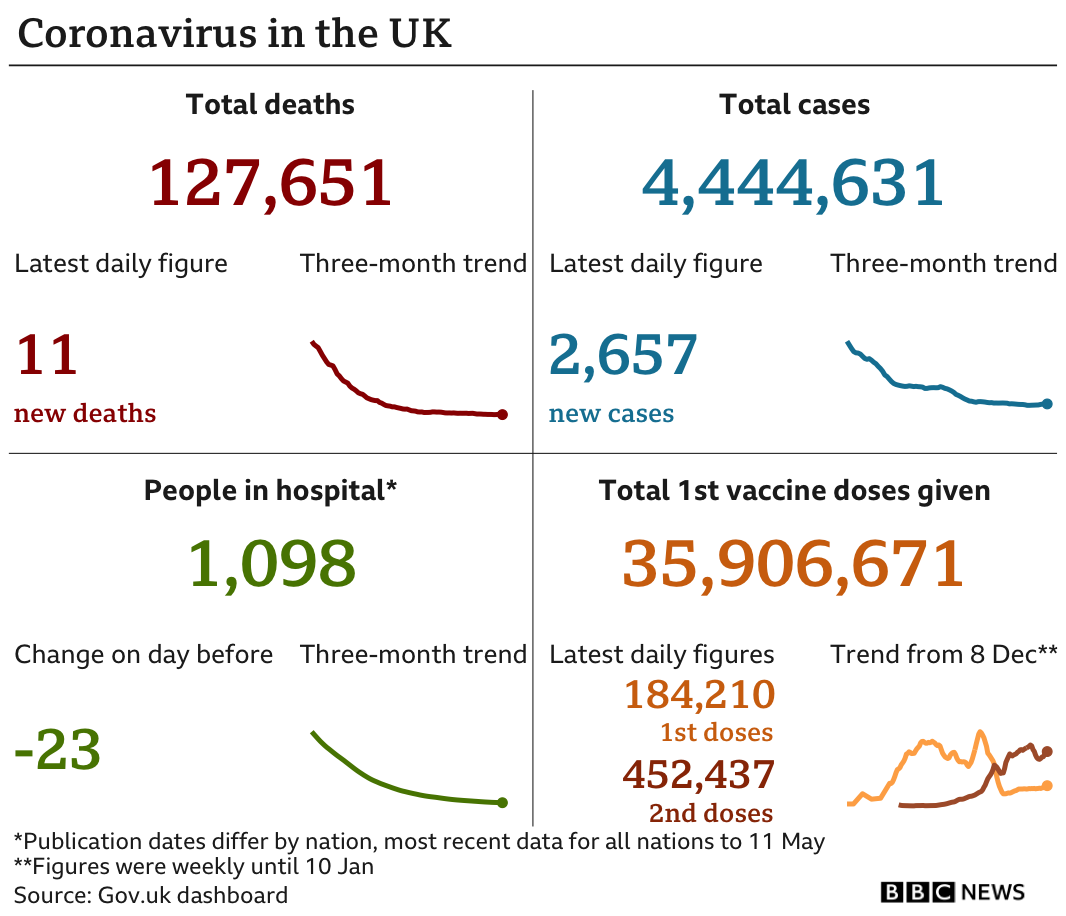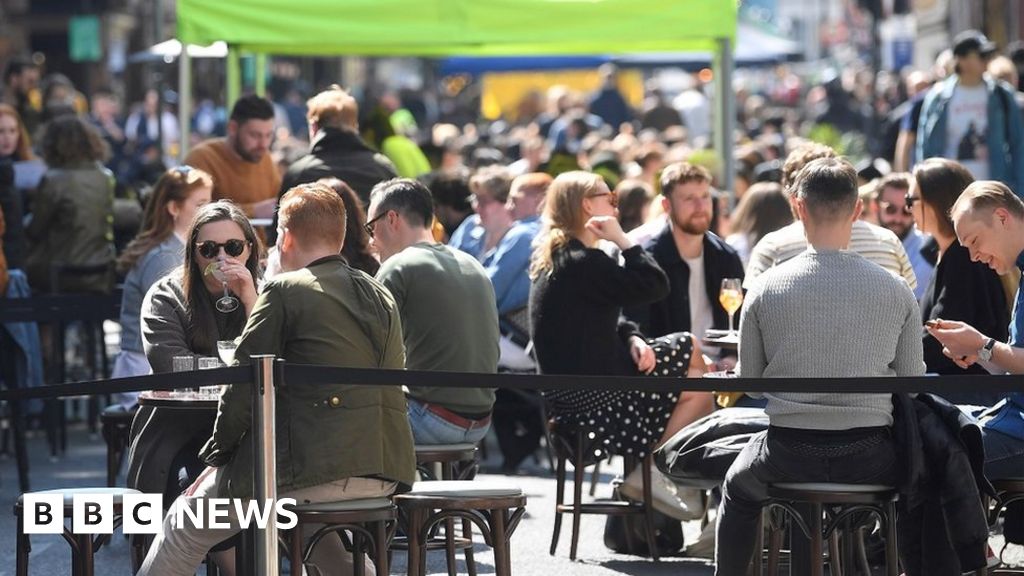
Local and regional restrictions to tackle the Indian Covid variant cannot be ruled out, the government has said, as it expressed concern over the speed of the variant’s spread in England.
It said “economic and social” restrictions could be reimposed in parts of England if necessary.
Measures could also include bringing forward second vaccines for some people in the worst affected areas.
Public Health England has recorded 1,313 UK cases of the Indian variant.
The figures released on Thursday are more than double the 520 cases recorded by PHE up to 5 May.
The Department of Health and Social Care (DHSC) said there was “no firm evidence yet to show this variant has any greater impact on severity of disease or evades the vaccine”.
But it also said ministers “cannot rule out reimposing economic and social restrictions at a local or regional level if evidence suggests they are necessary to contain or suppress a variant which escapes the vaccine”.
Health Secretary Matt Hancock said the government was supporting areas where cases were rising and urged people to “continue to be vigilant”.
“We are monitoring the situation very carefully and will not hesitate to take further action if necessary,” he said.
Earlier, Prime Minister Boris Johnson did not rule out reintroducing regional restrictions, saying: “It is a variant of concern, we are anxious about it.”
But he added there was no evidence to suggest England’s planned lockdown easing could not go ahead.
The next major easing of restrictions is due to take place on 17 May.

Surge testing is already taking place in 15 areas across England. This is when increased testing and enhanced contact tracing is carried out in specific locations to try to prevent the spread of outbreaks.
The DHSC said additional measures where “clusters” of cases are detected would include increased genome sequencing of cases; increased community engagement; and encouraging uptake of the vaccine for those who are eligible.
It said ministers were also considering bringing forward second doses for people who are eligible.
Cases of the Indian variant in the UK have been recorded in London, Bolton, Tyneside and Nottingham.
PHE said mobile testing units had been set up in Bolton, and door-to-door PCR testing had been offered to 22,000 residents.
A vaccine bus has been set up in the town to increase uptake among those who are eligible for vaccinations and a rapid response team of 100 nurses, public health advisers and environmental health officers has been sent in.
Extra clinics will open in Blackburn and Darwen in Lancashire from next week to offer the vaccine to those who are eligible under national guidelines.
Surge testing has also been deployed in Sefton, Merseyside, after cases of the Indian variant were confirmed in the Formby area, with anyone over 16 who lives, works or studies in the area urged to take a PCR test.

- A ROMANCE BEGINS IN LOCKDOWN: Stephen Fry narrates U.ME, a new musical!
- FIVE OF THE MOST MEMORABLE FA CUP MOMENTS: How many do you know?

